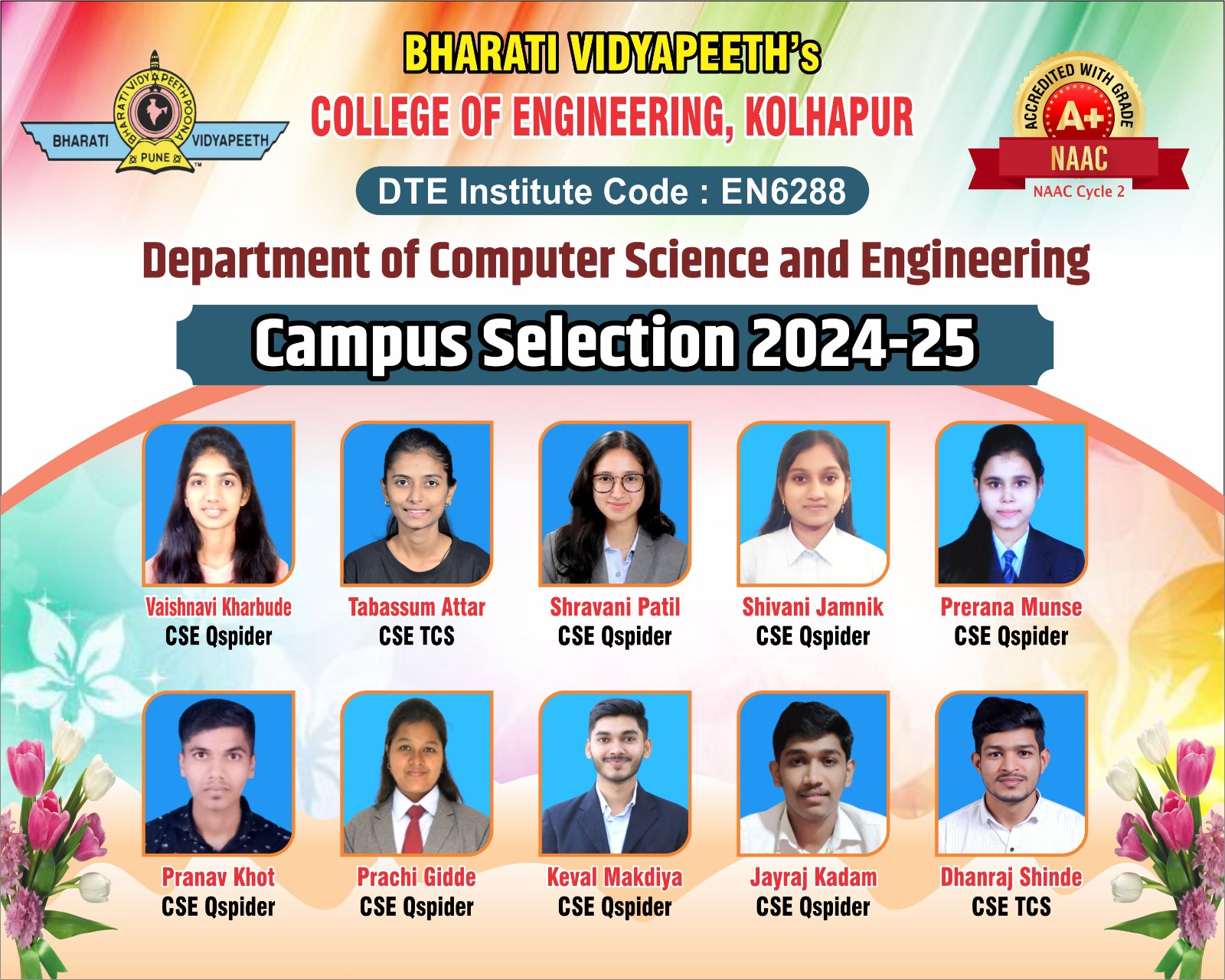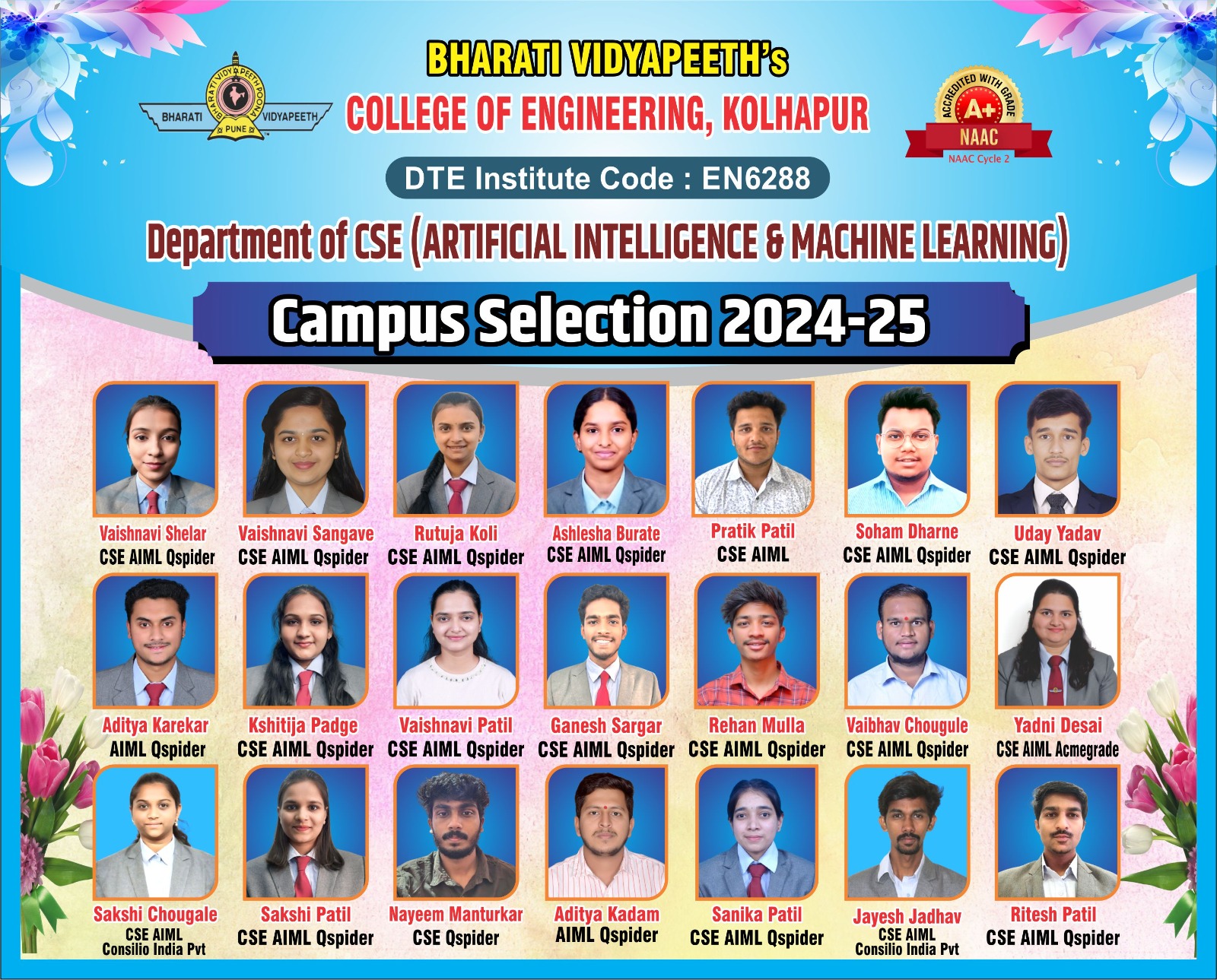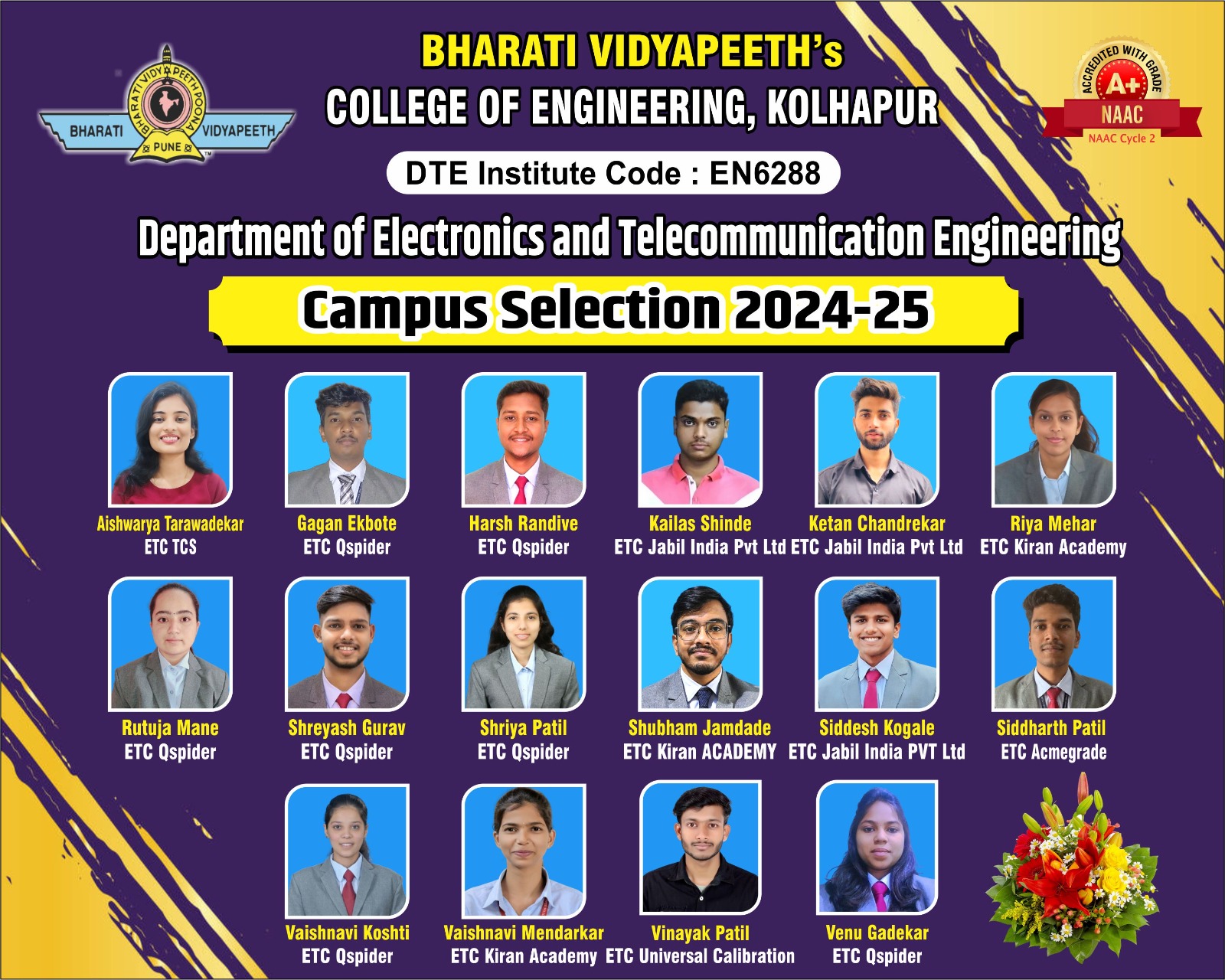Computer Science and Engineering (AI & ML)
Home
History:
Department of CSE (Artificial Intelligence and Machine Learning) was started in year 2021. The department has well qualified, devoted and dynamic team of 04 teaching staff member. A vibrant teaching – learning ambiance is maintained in the department through seminars, industry institute interaction etc. The department focuses on developing future software professional who strive towards inculcating good academic skills along with industrial exposure.
Vision:
To provide quality education that develops technologically strong and ethical Engineers into the challenging digital world
Mission:
- To educate students in the emerging technology of Artificial Intelligence and Machine Learning
- To inculcate holistic academic environment among the students
- To equip students with interdisciplinary skill sets to be able to build smart and intelligent systems
Program Educational Objectives (PEOs)
Program Educational Objectives (PEOs)
- PEO1: To provide students with core proficiency in engineering, mathematics, science and technology to establish successful career path in their life.
- PEO2: To provide the students thorough knowledge to plan, analyze, design, develop and test AI and ML based solutions for real world problems
- PEO3: To inculcate among students, professionalism, ethical standards, effective oral and communication skills, leadership qualities, diverse professional environments emerging technologies
- PEO4: To explore innovative learning opportunities for application of knowledge to benefit society
Program Outcomes (POs)
Program Outcomes (POs)
- Engineering knowledge: An ability to apply knowledge of mathematics, science and engineering fundamentals in the field of Computer Science to the solution of engineering problems
- Problem analysis: An ability to design experiments, identify, formulate, analyze & interpret engineering problems in the field of Computer Science
- Design & Development of Solutions: An ability to design solutions for engineering problems and design a system, component, or process to meet desired needs within realistic constraints such as economic, environmental, social, political, ethical, health and safety, manufacturability, and sustainability
- Investigation of Complex Problem: An ability to design software, performs experiments, analyzes and interprets the outcomes data to arrive at valid conclusions
- Modern tool usage: An ability to use the techniques, skills, and modern engineering tools and softwares necessary for engineering practice
- Engineer and society: The broad education necessary to understand the impact of engineering solutions in a global, economic, environmental, and societal context
- Environment& sustainability: An ability to understand the impact of engineering solutions in social and environmental contexts and demonstrate knowledge of and need for sustainable development
- Ethics: An ability to apply ethical principles and commit to professional ethics and responsibilities and norms of engineering practice
- Individual and Team Work: An ability to function effectively as an individual, and as a member or leader in diverse teams and in multi disciplinary settings
- Communication: An ability to communicate effectively about their domain in both verbal and written form
- Project Management and Finance: Demonstrate knowledge and understanding of engineering and management principles and apply these to one’s own work, as a member and leader in a team, to manage Projects and in multidisciplinary environments
- Life-long Learning: Recognize the need for and have the preparation and ability to engage in independent and life- long learning to survive in Company/Organization or independently
Programme Specific Outcomes (PSOs)
Programme Specific Outcomes (PSOs)
- Students should be able to understand the concepts and applications in the field of Computer Science Engineering (Artificial Intelligence and Machine Learning)
- Students should be able to use engineering practices, strategies and tactics for the development, operation and maintenance of softwares
- Students should posses the skills to communicate in both oral and written forms
Infrastructure
Infrastructure
| S.No. | Name of classroom | Area in Sq.M. |
| 1 | Lecture Hall-01 | 100 |
| 2 | Lecture Hall-02 | 100 |
| 3 | Tutorial Room | 100 |
Laboratory
Laboratory
| Sr.No. | Name of the Lab | Area in SQ.M |
| 1 | Data Analytics Lab | 93 |
| 2 | Data structure and Algorithm Lab | 78 |
| 3 | Cloud Computing and IoT Lab | 78 |
| 4 | Advance machine learning lab | 78 |
| 5 | AI Project lab | 78 |
Curriculum Activities
Curriculum Activities
| Sr. No. | Date | Event / Program | Resource Person / Chief Guest / Chair Person | Responsible Person / Co-ordinator | Duration |
| 1 | 28th Aug. 2023 | Department of CSE (AIML) organized a one day workshop on “Internet of Things”.;; | Mr. Rajwardhan P. Salunkhe, Director, PMS Robotics, Research Center, Kolhapur.; | Mr. S. M. Momin | One Day |
| 2 | 4th Sept. 2023 | Seminar on how to choose best universities in UK for Higher Education & Scholarships. | Prof. Abhay Kelkar, Study Abroad, Shri Mahalaxmi Academy, Overseas Education & Immigration. | Mr. S. M. Momin | 2 Hours |
| 3 | 5th Sept. 2023 | Teachers Day Celebration and Inauguration of new lab set up as Cloud Computing & IoT Lab.; | Dr. V. R. Ghorpade, Principal, BVCOE, Kolhapur, Dr. J. K. Patil, Vice-Principal, BVCOE, Kolhapur | Mr. S. M. Momin | One Day |
| 4 | 13th & 14th Sept. 2023 | Two-days workshop on "Learn to Lead" held by the Rotary Club of Kolhapur and the M. R. Pai Foundation, Mumbai in collaboration with Bharati Vidyapeeth's College of Engineering, Kolhapur.; | Mr. Vivek Patki, Mr. Sachin Kamath, Trainer and Entrepreneur coach from Rotary Club, Kolhapur and M.R.Pai Foundation Mumbai. | Mrs. S. M. Mulla,;;;;;;;;;; Mr. S. M. Momin | Two Days |
| 5 | 14th Oct. 2023 | One day workshop on Computer Algorithms. | Mr. Kiran Kamble, Data scientists at ML / DL / Computer vision Dept., Coditiation Pvt Ltd. PhD research scholar, Shivaji University Kolhapur. | Mrs. S. M. Mulla | One Day |
| 6 | 21st Oct. 2023 | Parents Meet of Sem-I | Interactive session with parents along with GFMs and faculty members.; | Mr. S. M. Momin | Half Day |
| 7 | 6th Nov. 2023 | One Day workshop on "Start-Up & Entreneurship Awareness" | Mr. Prasanna Karmarkar, Dept. of MCA, Shivaji University, Kolhapur. | Mrs. M. V. Thorwat | One Day |
| 8 | Weekly Activity | Conducted sports activity on every Tuesday and Friday respectively for SY and TY students under Future Care Fitness Club | Mr. H. B. Patil, Physical Director, BVCOE, Kolhapur | Mr. N. S. Kadam | 2 Hours; per week |



 Free
Free

